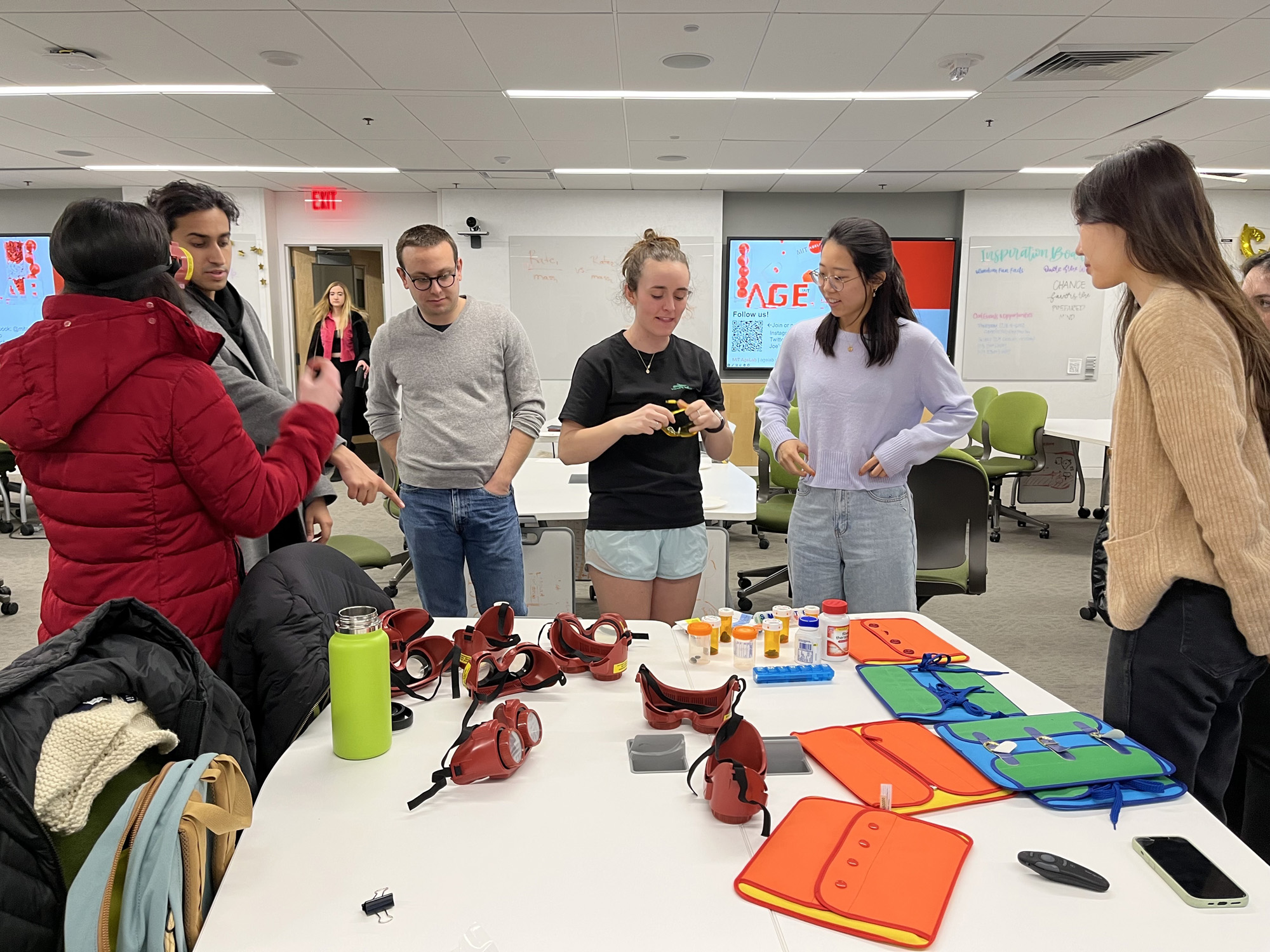AGNES Visits Students at MGH and Harvard Medical School
AGNES, the MIT AgeLab’s Age Gain Now Empathy System, is a suit designed to help professionals better understand some of the physical challenges associated with aging. This empathy tool was developed by AgeLab researchers and students, designers, and an occupational therapist to approximate some of the more common physical changes related to motor, vision, flexibility, dexterity, and strength that may occur with older age. AGNES has been used in retail, public transportation, the home, community, automobile, workplace and other environments, and also has appeared in a variety of public media.
On January 31st and February 2nd, AgeLab researchers Alexa Balmuth, Sophia Ashebir and Taylor Patskanick demonstrated AGNES to students at Massachusetts General Hospital and Harvard Medical School, respectively.
At MGH, a group of 70 physical therapy students used AGNES to practice rehabilitative exercises and to experiment with daily tasks such as opening medication bottles and navigating websites. They reflected on how their experiences with AGNES might inform how they relate to their patients, and discussed differences between pathological and normal aging changes to the body – such as, in the latter case, changes in range of motion vision, balance, and muscle loss.
At Harvard Medical School, the researchers presented to medical students who were part of the school’s geriatric and palliative care interest group. They gave a talk on AGNES and the tool’s applications before inviting an audience member to try on AGNES and attempt sitting down, standing up, picking up items from the floor, and more. Attendees engaged in a conversation about how the AGNES experience mirrors, or differs from, their own past experiences working with older adults, and how the suit may provide insight for rising medical professionals.
In their conversations with students, the AgeLab team also received feedback for how the suit could be adjusted to better capture the aging experience, such as modifying lumbar flexibility, dorsiflexion, and hearing.
